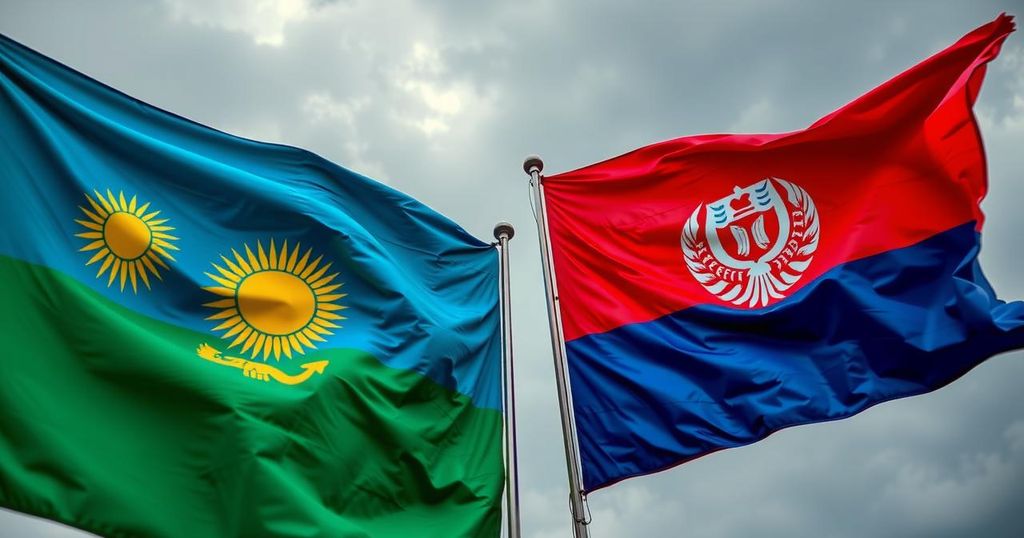Kazakhstan and Uzbekistan have recently opted against joining Russian-led multilateral groups, BRICS and the Eurasian Economic Union, respectively, showcasing their desire to assert sovereignty amidst the geopolitical tensions following Russia’s invasion of Ukraine. Both nations are actively redefining their foreign policies, opting for closer ties with Western powers while distancing themselves from Russian influence.
Kazakhstan and Uzbekistan have recently demonstrated a significant shift in their foreign policy approaches by rejecting participation in Russian-led multilateral organizations—namely, BRICS and the Eurasian Economic Union (EEU)—indicating their intent to assert greater independence from Moscow’s influence. Kazakhstan has opted to maintain observer status in BRICS, while Uzbekistan has officially chosen to remain an observer state within the EEU. Despite their ongoing diplomatic ties with Russia, these decisions underscore a budding sovereignty as both nations seek to enhance their autonomy amidst the geopolitical tensions following Russia’s invasion of Ukraine. Kazakhstan’s stance was articulated by President Qasym-Zhomart Toqaev’s spokesman, Berik Uali, who confirmed that Kazakhstan would not pursue full membership in BRICS in the near future, emphasizing alignment with the United Nations as the preferred platform for addressing global challenges. This showcases Kazakhstan’s strategic balancing act, as it navigates relationships with both Western and Eastern powers, including the importance of reform within the UN framework. On the other hand, Uzbekistan’s withdrawal from the EEU appears to be an active measure against Russian pressures, with its parliament noting the lack of benefits from EEU membership. Uzbekistan, under President Shavkat Mirziyoev, has sought to explore alternative trade routes beyond Russia, reflecting a broader regional trend of distancing from Moscow amidst looming sanctions. This maneuver further illustrates the changing dynamics in Central Asia, where nations are cautiously reassessing their affiliations and economic dependencies on Russia. The Kremlin’s reaction to these developments indicates concern over the implications for its influence in Central Asia, as both Kazakhstan and Uzbekistan are seen as vital partners in maintaining a stabilizing presence in the region but now prioritize their national interests over their historical alignments.
The geopolitical landscape of Central Asia has been significantly affected by Russia’s invasion of Ukraine, leading to an increasingly cautious approach from Kazakhstan and Uzbekistan towards Moscow. Historically, both nations have maintained strong ties to Russia through various multilateral organizations such as the Collective Security Treaty Organization (CSTO) and the Eurasian Economic Union (EEU). However, their recent decisions to decline deeper engagements with these groups signal a recalibration of their foreign policies in an effort to assert sovereignty while managing economic dependencies. As Russia pursues efforts to build coalitions through outlets like BRICS, Central Asian countries are facing pressure to align closely, yet they are also wary of the risks associated with such affiliations, particularly in light of the adverse socioeconomic repercussions stemming from sanctions against Russia.
In conclusion, Kazakhstan and Uzbekistan are actively redefining their foreign relations, demonstrating a significant shift towards asserting their sovereignty amidst geopolitical tensions. By opting out of membership in Russian-led organizations such as BRICS and the EEU, both nations are signaling their intent to balance relationships with Moscow while avoiding over-dependence. As these countries navigate their interests, their decisions reflect a broader trend of Central Asian nations seeking enhanced autonomy in a rapidly changing geopolitical environment. Such moves may profoundly impact the regional balance of power, as they explore alternatives to their traditional alignments.
Original Source: www.rferl.org






